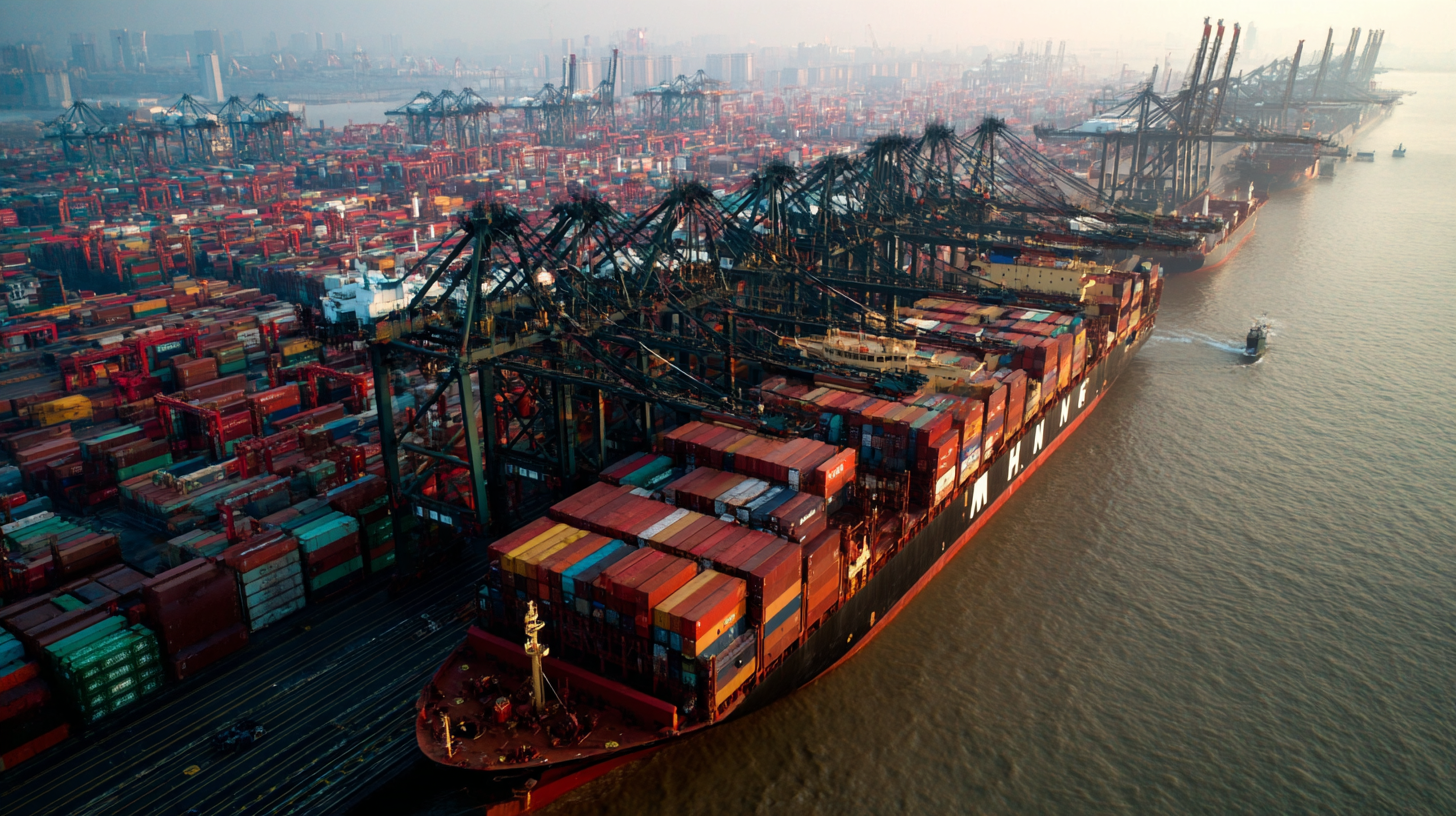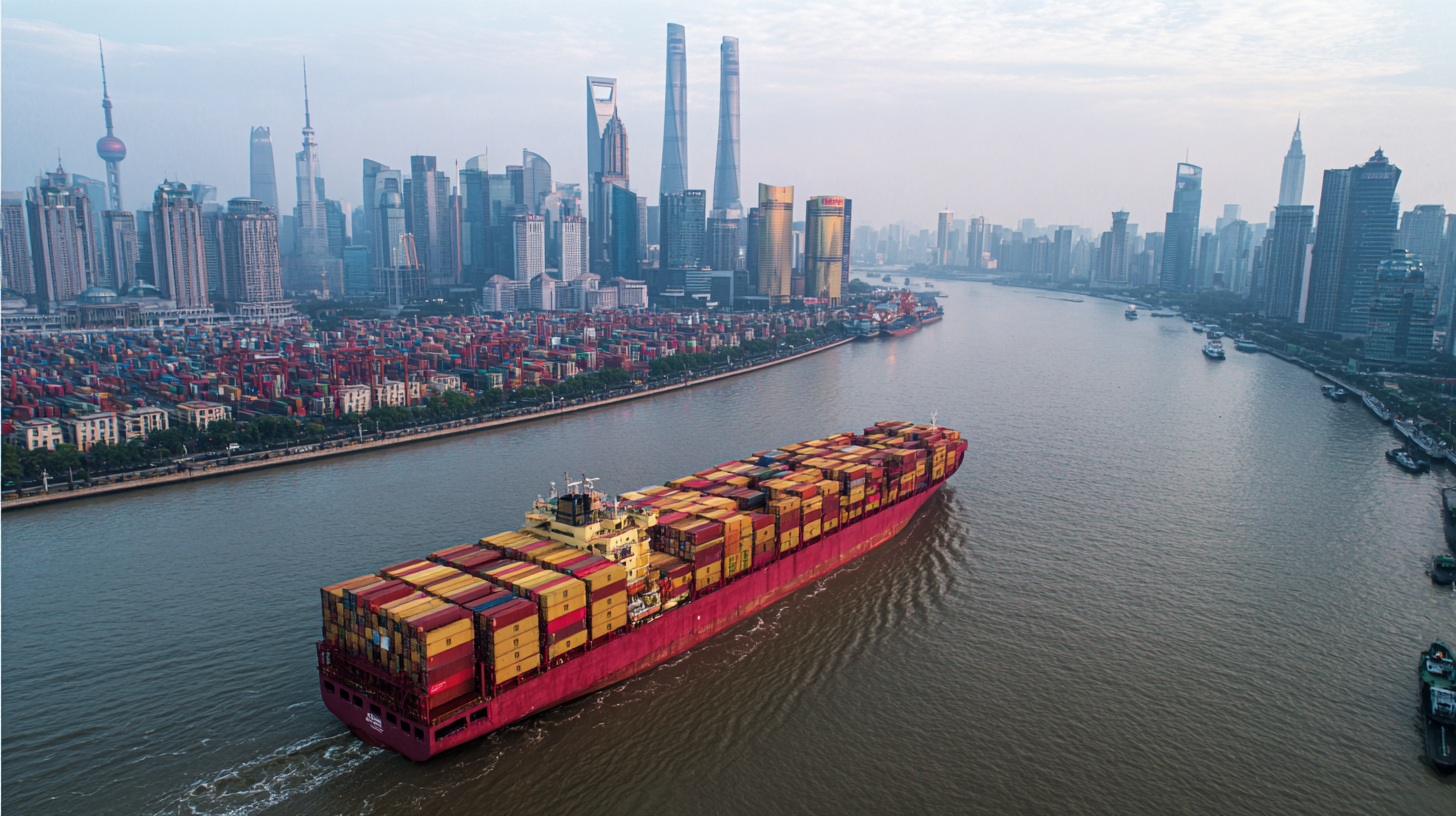
Discover Excellence: China’s Premier Quality Products from the Top Global Suppliers
In an ever-evolving global marketplace, the pursuit of excellence has never been more crucial, especially when it comes to the quality of products offered by suppliers. As consumers become increasingly discerning, the emphasis on superior craftsmanship and reliability has shifted into focus. China, renowned for its manufacturing prowess, has emerged as a hub for premier quality products, attracting top global suppliers who share a commitment to excellence. This blog explores the dynamic landscape of China's top suppliers, highlighting innovative practices and the rigorous standards they maintain to ensure the highest quality. Join us in discovering how these suppliers not only meet the demands of quality-conscious consumers but also set the benchmark for the future of global trade, reinforcing China's position as a leader in delivering exceptional products.

Understanding Industry Production Standards: An Overview
In today's global market, understanding industry production standards is crucial for discerning quality products, especially in China, where manufacturing is a significant economic driver. According to a report by the International Organization for Standardization (ISO), over 1.5 million ISO standards are currently in use worldwide, guiding manufacturers in various sectors, from electronics to textiles. These standards ensure that products meet safety, efficiency, and environmental stability benchmarks, making it easier for buyers to identify reputable suppliers.
Furthermore, the Chinese government has increasingly focused on quality control and international compliance, leading to the establishment of stringent production standards that align with global expectations. For instance, the China National Institute of Standardization released data indicating that adherence to international standards can boost a company’s market share by as much as 20%. This drive not only enhances the credibility of Chinese products but also fosters innovation and competitiveness in the global landscape, reaffirming the importance of understanding these industry standards for anyone looking to source top-quality items from China.

Key Types of Production Standards in China’s Manufacturing Sector
China's manufacturing sector is experiencing a transformative evolution, increasingly characterized by high production standards that meet both domestic and international expectations. As fixed asset investment rises steadily, reaching 514 trillion yuan in 2024 with a slight 3.2% growth, the emphasis on quality and procedure becomes crucial. Manufacturers are now focusing on stringent production standards to enhance the competitiveness of Chinese goods in the global market. This shift not only improves product quality but also fosters trust among international consumers.
In conjunction with these developments, the introduction of "institutional openness" marks a significant milestone in China's approach to trade. This concept, first articulated by Xi Jinping in 2018, highlights the importance of regulations and standards in fostering a more robust trading environment. Companies that align with these enhanced production standards are likely to gain a competitive edge, showcasing the intersection of quality manufacturing and strategic policies designed to elevate China's role in the global supply chain. As the nation navigates complex international dynamics, the focus on production standards will be essential in sculpting its economic landscape.
Discover Excellence: Quality Production Standards in China’s Manufacturing Sector
The Role of Global Suppliers in Upholding Quality Standards
In today's competitive marketplace, global suppliers play a pivotal role in maintaining and enhancing quality standards, particularly in China's manufacturing sector. According to the Global Quality Management Report 2023, approximately 75% of companies report that their partnerships with international suppliers significantly bolster their internal quality assurance processes. By implementing rigorous quality control measures and adhering to international standards, these suppliers contribute to the production of premium products that meet global consumer expectations.
Moreover, the integration of advanced quality management systems has become increasingly prevalent among top suppliers. The International Organization for Standardization (ISO) indicates that ISO 9001 certifications have surged by 20% over the last five years, reflecting a strong commitment to quality among suppliers. This dedication ensures that products not only satisfy regulatory requirements but also excel in performance and reliability, ultimately enhancing consumer trust in “Made in China” products. As the industry continues to evolve, the collaborative efforts between Chinese manufacturers and their global suppliers will be crucial in setting the benchmark for quality excellence worldwide.
Comparative Analysis of Production Standards Across Industries
The pursuit of excellence in product quality has become paramount in China's manufacturing landscape, with various industries adhering to rigorous production standards. A recent report by the International Organization for Standardization (ISO) indicates that the adoption of international quality management systems has significantly improved operational efficiency and product reliability across sectors. For instance, in the electronics sector, manufacturers are increasingly aligning with ISO 9001 standards, which enhance customer satisfaction and boost market competitiveness.
Moreover, the automotive industry exemplifies how stringent production standards can drive quality. According to a 2022 analysis by the Automotive Industry Action Group (AIAG), 85% of leading Chinese auto suppliers are meeting or exceeding the IATF 16949 standard, which focuses on continual improvement in quality management systems. This alignment not only ensures compliance with global standards but also positions these suppliers favorably in the global automotive market. As manufacturers in China continue to elevate their production standards, the emphasis on quality is becoming a key differentiator in the quest for excellence among top global suppliers.

Innovations in Industry Standards: Shaping the Future of Quality Products
In the rapidly evolving landscape of global trade, the need for superior quality products has never been more pressing. Innovations in industry standards are at the forefront of this transformation, driving companies to elevate their manufacturing processes and adhere to rigorous quality benchmarks. China's commitment to enhancing its quality control mechanisms has positioned it as a leader in producing premier quality products that meet the demands of both domestic and international markets.
The shift towards stricter industry standards not only cultivates a culture of excellence but also fosters confidence among consumers. By integrating cutting-edge technologies and sustainable practices, manufacturers are redefining what quality means in various sectors, from electronics to textiles. These innovations are imperative in shaping the future of global commerce, as they ensure that products are not only reliable but also environmentally responsible. As China collaborates with top global suppliers, the interplay of innovation and quality standards will continue to reshape the economic landscape and establish a new norm for excellence in manufacturing.
Discover Excellence: China’s Premier Quality Products from the Top Global Suppliers
| Product Category | Innovation Type | Quality Standard | Market Demand | Sustainability Index |
|---|---|---|---|---|
| Electronics | AI Integration | ISO 9001 | High | 85% |
| Automotive | Electric Vehicles | ISO/TS 16949 | Medium | 75% |
| Textiles | Smart Fabrics | OEKO-TEX | High | 90% |
| Home Appliances | Energy Efficiency | Energy Star | High | 80% |
| Cosmetics | Natural Ingredients | ISO 22716 | Medium | 70% |
